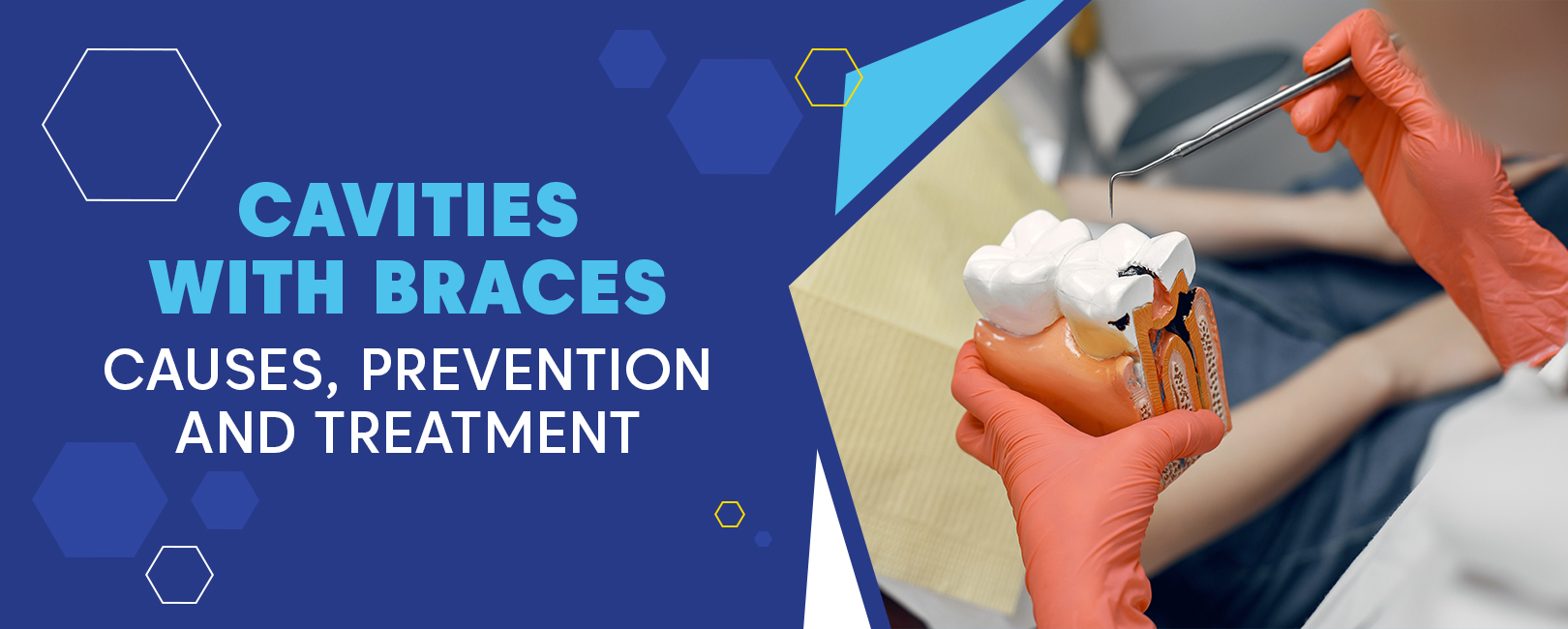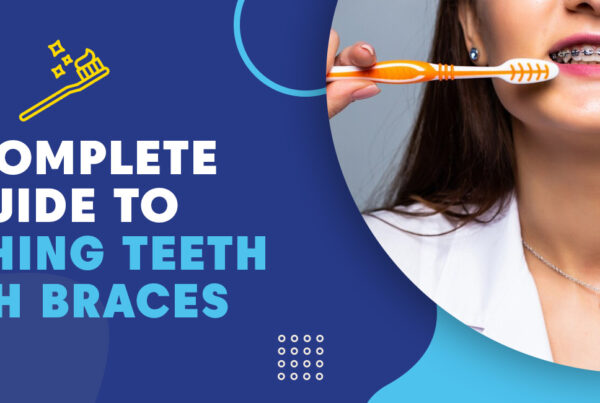- What are Tooth Cavities?
- Can You Get Braces with Cavities
- What Steps Should Individuals Take to Address Cavities Before Getting Braces?
- Why Is It So Important to Avoid Cavities with Braces?
- How Are Cavities Treated While Wearing Braces
- How to Prevent Cavities with Braces
- Can Orthodontists Fill Cavities?
- Where Can I Get Braces?
Dental wax is a very effective solution for reducing discomfort with braces, especially during the initial days, as brackets and wires can sometimes rub against the tissues of the mouth, and wax is a way of protecting them from this.
So, if you want to protect yourself and avoid the discomfort caused by braces, keep reading because we give you all the important information you need to know.
What is Wax for Braces?
Cavities are damaged areas on the surface of our teeth; it is a progressive disease that destroys dental tissues. According to the WHO, it is very common and is present in almost the entire adult population at this time and between 60-90% of children.
You might be wondering how cavities and dental braces are related; when we have braces, it can sometimes be more difficult to clean our teeth properly. The brackets and wires can make it tricky to reach all the small, tight corners where bacteria can hide. This means cavities can develop more quickly if we don’t take extra care.
What are Tooth Cavities?
Tooth cavities are damaged areas on the hard surface of your teeth; these decayed spots turn into tiny openings or holes that can cause intense toothache, infections, and tooth loss.
This can happen for a number of reasons, including bacteria in your mouth, frequent snacking, drinking sugary drinks and not taking good care of your teeth.
Cavities and tooth decay are the most common health problems worldwide, and occur most frequently in children, teenagers, and older adults; however, anyone with teeth can develop cavities, including babies.
It is possible to detect and treat them in their early stages when they are minor But if left untreated, they can spread and damage the entire tooth structure. Eventually, these teeth may not be able to withstand the pressure of biting and chewing, and orthodontic appliances such as braces can also damage them.
Since untreated tooth decay can become a significant problem, patients considering braces may be concerned that existing cavities could worsen during treatment.
Can You Get Braces with Cavities
A common concern for people considering orthodontic treatment is whether they can get braces if they have tooth decay. Orthodontic braces are used to straighten and align teeth, but can be a challenge for people with dental problems.
Since treatment of these problems is time-sensitive, your orthodontist will advise you to address them before braces are fitted.
Depending on the extent of the damage, fillings, crowns or even root canal treatment may be needed to repair more serious structural damage. These treatments will prevent the disease from causing further damage to your tooth.
Furthermore, the normal pressure applied by braces on the teeth could worsen the damage to a tooth affected by cavities. Having a dental checkup before getting braces is vital to ensure you are still eligible for your treatment plan.
Type of cavities that may need to be filled or treated before getting braces include:
- Root Cavities: A root cavity appears at the surface root of a tooth. This is considered the most serious as healthy roots are necessary to keep the tooth healthy. Roots also offer less protection, so cavities can grow quicker, especially if you suffer from gum disease.
- Smooth Surface Cavities: Smooth surface cavities occur on the smooth sides of the teeth. Yes, the sides of your teeth can also get cavities due to dental plaque.
- Pit And Fissure Cavities: Pit and fissure cavities occur at the top of your teeth or the chewing surface and are most common on the back molars. This cavity type occurs due to dental plaque buildup when bacteria become stuck inside them.
What Steps Should Individuals Take to Address Cavities Before Getting Braces?
While it is possible to get braces without getting your cavities filled, it is always better to have your cavities treated by a dental specialist first; that way, you won’t have to experience potential pain, discomfort, swelling, and other complications that can arise from untreated cavities.
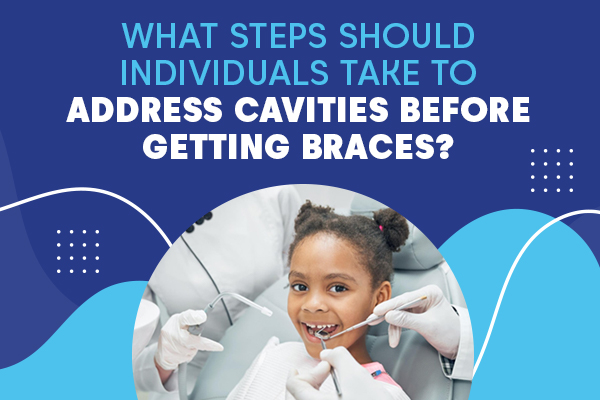
Before getting braces, there are a few essential things you should do to take care of your teeth and make sure they are healthy; here are some simple steps you can take:
- Dental examination: Make an appointment for a comprehensive dental checkup to detect cavities or dental problems.
- Treatment plan: Develop a treatment plan with your dentist to eliminate cavities, which may include procedures such as fillings or root canals.
- Oral hygiene: Maintain strict oral hygiene, including daily brushing and flossing, to reduce the risk of cavities and maintain overall dental health.
- Dietary changes: Reduce the consumption of sugary foods and drinks that contribute to forming new cavities and worsen existing ones.
- Regular checkups: Attend regular dental checkups to monitor the progress of cavity treatment and ensure that your teeth and gums remain healthy before starting orthodontic treatment.
- Dental fillings: Treat your cavities before getting braces.
By treating cavities before applying dental braces, you can establish a decisive foundation for oral health, which reduces the risk of complications during orthodontic treatment and promotes an overall successful and effective treatment outcome.
Why Is It So Important to Avoid Cavities with Braces?
It’s crucial to prevent cavities when you have braces because braces can make it harder to keep your teeth clean. Braces have brackets and wires attached to your teeth, creating more places for food and plaque to get stuck; if you don’t clean these spots well, you can end up with cavities.
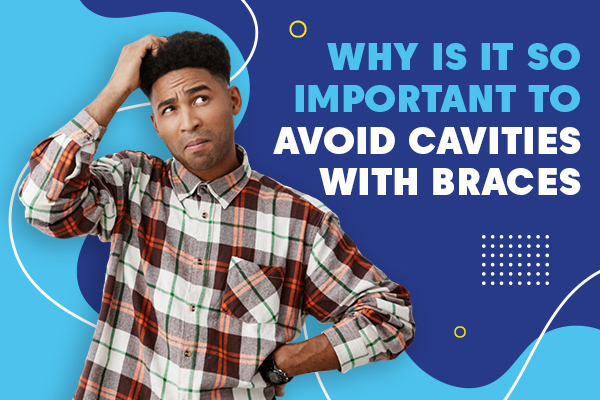
Avoiding cavities with braces is very important because:
- Efficient Teeth Movement: If your teeth and gums are in good shape, your braces treatment will be completed on time, and we can achieve the dental movements we had planned from the beginning.
- Worsening of Cavities: Without proper treatment, cavities can progress and lead to more extensive tooth decay, potentially affecting the overall oral health and may require more complicated dental procedures later on.
- Increased risk of infections: Untreated cavities can increase the likelihood of infections in the teeth or gums, leading to pain and discomfort and complicating your orthodontic treatment.
- Difficulty in maintaining oral hygiene: Brace appliances can make it hard to clean your teeth thoroughly, and if there are untreated cavities, it makes it even more challenging to keep your teeth clean, resulting in a higher risk of plaque buildup, cavities, and gum diseases.
- Delay in overall treatment: If cavities are not treated and additional dental procedures are required during orthodontic treatment, the overall treatment can take longer, delaying the achievement of desired results.
- Increased discomfort: If you have untreated cavities, they can make your teeth sensitive and painful, and the pressure from braces can worsen these discomforts, making the orthodontic treatment process more uncomfortable for the person.
How Are Cavities Treated While Wearing Braces
When you have braces and develop cavities, the treatment process is similar to when you don’t have braces, but it can be a bit more complicated. Here’s how cavities are usually treated when you’re wearing braces:
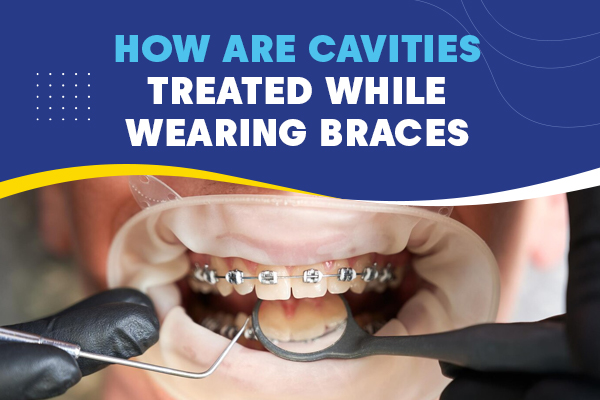
- Treatment for cavities when wearing braces depends on the location and size of the cavity.
- For early signs of decay, such as white spots, specific hygiene instructions may be given, and treatments like fluoride varnish can be used to prevent further decay.
- Small cavities that are easily accessible may be treated without removing the wires or brackets. The dentist will numb the tooth, remove the decay with a drill, and fill it with a tooth-coloured filling.
- If the cavity is under the braces, there are multiple cavities, or decay is in a hard-to-reach area, the dentist may need to remove the braces wire and sometimes the bracket.
- After treating the cavity, you will visit the orthodontist’s office to have the bracket re-bonded and the braces wire refitted; this ensures your orthodontic treatment can continue.
How to Prevent Cavities with Braces
Preventing cavities is better than having to treat them. 90% of the work can be done at home with a proper oral hygiene routine. While dental braces require some extra care to avoid plaque buildup, most of our patients don’t have any cavities during their orthodontic treatment.

There are several simple ways you can prevent cavities while wearing braces.
- Brush your teeth at least twice a day, for two minutes, focusing on brushing each tooth using a soft-bristled toothbrush and fluoride toothpaste.
- Floss your teeth at least once daily to clean between your teeth and remove any food particles that lead to a cavity. Don’t skip the floss!
- Rinse your mouth with a fluoride mouthwash that will help to strengthen your teeth and remove bacteria that cause plaque.
- Drink plenty of water to keep your mouth and body hydrated, and water also helps your body produce saliva, which naturally fights against plaque.
- Quit smoking or using tobacco, as it is directly linked to poor oral hygiene.
- Make sure to visit the dentist every six months for cleanings and checkups to prevent cavities from becoming bigger and more costly problems in the future.
- Eat a healthy diet and try to avoid foods high in starches and sugars that can stick to your teeth even after you’re done eating.
- If you can’t brush your teeth after eating a snack or meal, make sure to rinse your mouth with water right away to wash away some of the leftover food and sugars.
Can Orthodontists Fill Cavities?
Orthodontists are experts in straightening teeth and fixing bite problems, but they usually don’t perform cavity fillings. However, taking care of your teeth and gums while getting orthodontic treatment is really important.
Sometimes, orthodontists and dentists work together to ensure cavities are treated before or during orthodontic treatment. This collaborative approach ensures you get the best dental care possible and keeps your teeth and gums healthy overall.
Having cavities does not automatically exclude someone from receiving orthodontic treatment. To achieve a healthy and successful outcome, addressing any dental cavity issues before starting orthodontic treatment is essential.
Where Can I Get Braces?
If you’re considering getting braces, getting advice from professionals about your treatment and payment options is paramount. Orthodontic Experts can help you with the latest technology and personalized treatment plans for orthodontic treatments. During a consultation, we will examine you, take scans, and discuss which treatment options best suit you.
Make an appointment with us today to care for your oral health and get the best treatment in your area.


